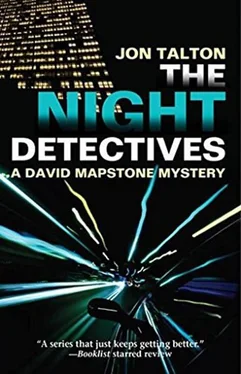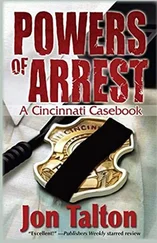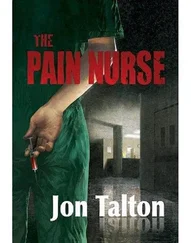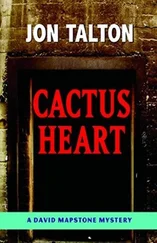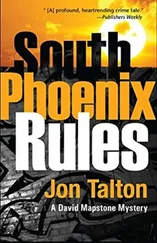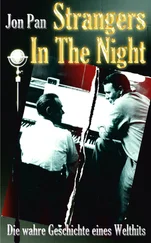Back to work, Mapstone. At least two firefighters, the night concierge, and perhaps some curious civilians had been in the unit before the uniformed officers ran them out. The “fact” that the condo had been locked with a deadbolt also came second-hand, from the night concierge.
The inventory of Grace’s belongings was minimalist: one pair of jeans, a cotton blouse, bra and panties, and black sneakers. But the clothes had not been neatly folded. The blouse was draped over a chair in the living room and the bra was two feet away on the floor. The jeans and panties were in the bathroom, again on the floor. There was a small amount of standing water on the bathroom floor, but the towels were dry and the shower hadn’t been recently used. One sneaker was in the hallway leading to the bedroom. The other was in the kitchen.
Her purse was on the living room sofa, a small black satchel, tipped on its side. Inside were a wallet, cell phone, tissues, keys, sunglasses, and hand lotion. I studied the photos of each. No pepper spray or knife, which Tim had said she always carried.
A cynical street cop would say Grace was wandering the condo, stripping down as she cried or raved or hallucinated. Maybe she splashed water from the sink onto her face-and onto the floor-trying to make herself snap out of it. But then she found the nerve, walked to the door, opened it, and stepped out on the balcony. Next, to make sure she couldn’t change her mind again, she handcuffed herself.
It might have gone down that way.
Wide-angle shots of the rooms showed nothing to indicate violence. Lamps were in their place. A big, fragile piece of pueblo pottery was undisturbed on a table nearest to the glass door. The bed was made. The kitchen looked as if no one ever cooked in it. The floors were clean except for the discarded clothing.
Another photo showed the inside of the front door. Writing in red said, I AM SO SORRY. It jarred me momentarily, bringing back memories of the wall in Tim’s apartment. But it wasn’t blood. A lab report said it was lipstick.
My cynical street cop, who had spent so many hours filling out paperwork for successful and attempted suicides, said to me: “See, she offed herself. Leave it to a Southern California airhead to have no writing implements other than her lipstick.”
The only problem was that the inventory showed no lipstick, no cosmetics of any kind. I did a grad-school speed skim of the rest of the incident report, supplemental reports, and Detective Sanchez’s case notes. No lipstick tube.
Sanchez tried Grace’s keys on the condo door. None fit. Her driver’s license had an out-of-date address. But her parents’ names and phone number were in her wallet, and they were the ones Sanchez called to notify. They flew over and identified her remains. If Grace’s wallet also had baby photos, they weren’t listed in the inventory. There was no mention of a baby anywhere.
The medical examiner rushed through the autopsy and toxicology reports, the cops no doubt being mindful of the Coronado case. Its findings were what you would expect from a fall of at least one-hundred-ninety feet onto concrete. Massive head trauma, burst organs, collapsed lungs, and dozens of fractured bones. “The cause of death was the fall,” one comment noted. Her bloodstream contained neither drugs nor alcohol. Her wrists showed abrasions where the handcuffs had been placed, but this could be consistent with a falling person’s panic. She had semen in her vagina.
I got up and returned to the laptop, using Google to search for keywords about what happened that night. Not one story appeared. I remembered what my friend Lorie Pope, once a reporter at the Arizona Republic , had told me: that newspapers had reassigned or pushed out the old-time police reporters, the ones who went on calls and formed close relationships with the cops. That was how she and I had first met, me a deputy, Lorie working the police beat on the city desk. Now the newspapers only wrote up what the police public information officers told them. Crime upset readers, or so the editors thought. Television was a different matter, but only if they had “visuals,” and no station seemed to pick up on the action that night. It was nearly midnight when she fell, after the end of the eleven o’clock news. If SDPD feared another suspicious death circus, they didn’t need to worry.
The death and autopsy photos were what I expected. About all that was recognizably left of Grace Hunter was the butterscotch hair with blond streaks.
Larry Zisman returned at one, a little more than an hour after Grace’s long dive. Sanchez initially interviewed him downstairs in the owners’ lounge. Then she took him to the station to sign statements.
Zisman and his wife had owned the condo for six years. They often spent the summer months there. His wife worked for Intel and sometimes traveled, so Zisman was frequently there alone. Zisman described Hunter as his girlfriend and begged the police not to tell his wife. They had five children. He had never been unfaithful before. The usual routine. He also referred to Grace as “Scarlett,” a discrepancy Sanchez noted and questioned him on. “Subject states that he only knew deceased as Scarlett, a student at SDSU.”
He had met her three years before at a convention and they became occasional lovers. He denied giving her money, only some presents. As for the handcuffs, they belonged to Zisman, the reserve Phoenix police officer. He said they used them for light bondage during sex.
Zisman said they had a fight the night of her death. She wanted to see him more regularly and demanded that he leave his wife. She became hysterical and was generally “emotional” and “high strung.” It did not become physical, according to Zisman’s statement, only shouting and tears. “Subject stated that he left the condo at approximately 2230 hours with Hunter still there, to let the situation cool down.”
According to Zisman, they did not have sex that night.
Zisman said he went to his boat, which was moored at a marina less than a mile away, and stayed there reading until half past midnight. Coming and going, he talked with a couple that owned a craft at the next slip. This checked out.
So if Zisman left the condo at half past ten that night, Grace was alone for little more than an hour before her death. If she was, in fact, alone.
I thought about what Tim had told me. He had gone to classes that morning and not returned until after three. Grace was gone. So even if she went out right before three, it left many unaccounted hours before her death. I found nothing that gave an indication of how they might have been spent. Grace had a new cell phone and it had no information on it, no calls, no texts, either incoming or outgoing. Would the mother described by Tim simply walk out of the Ocean Beach apartment, leaving the baby, and not even check in?
If Sanchez asked Zisman the last time prior to that night he had seen Grace, or Scarlett, it wasn’t in the report. If he hadn’t seen her for, say, eighteen months, then Tim’s story might be accurate. If he had been with her four times that month, Tim had been betrayed. Unfortunately, after my encounter with the Claymore mine, I didn’t think Isabel Sanchez would tell me diddly.
If Tim was telling the truth about them hiding out for more than a year in O.B. as Grace gave birth to their baby, one of the most important questions remained unanswered: why Grace would have gone downtown to meet up with a former john?
I had to hand it to Zisman. From the case notes, he came across with exactly the right mixture of distraught, surprise, and forthcoming. And maybe all that was genuine. But he was also in law enforcement. The only ones better at lying than whores were cops.
Then there was the missing lipstick tube.
Читать дальше
